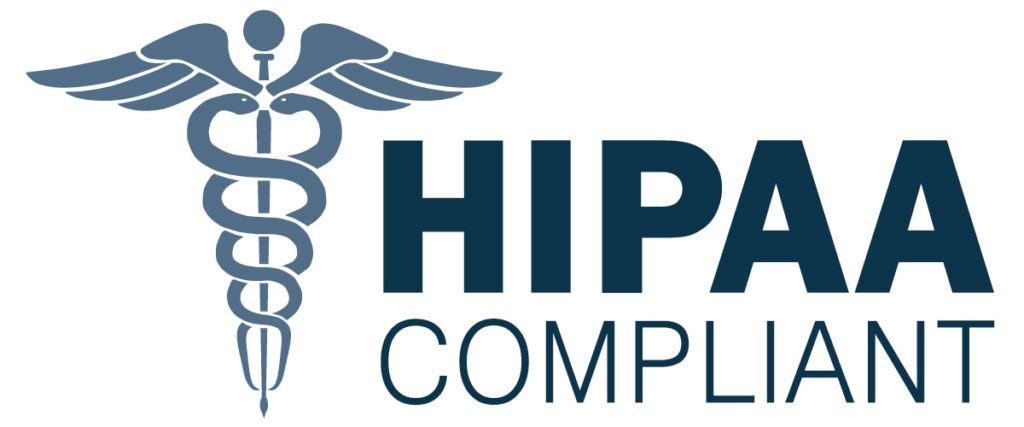Do you lead a medical practice or other healthcare-related business or organization? If so, you know there’s so much more to doing so than offering quality, compassionate medical care. Many of these ancillary responsibilities can eat up significant resources, time, money and margin. They can also distract your team from its core mission.
Today, we’ll focus on eight of the top reasons why partnering with a managed IT provider makes sense for your medical practice.

1. Focus on Medicine, Not IT
Your medical practice has a singular goal and driving mission: to provide quality medical care that improves patients’ lives. In fact, if you look at your mission statement, it probably has language similar to that.
But what about IT? Look back at your mission statement, and you don’t see anything about having the best-organized or most efficient IT infrastructure among your peers. That’s not in your mission statement, because it isn’t core to who you are as an organization.
Running a medical practice of any size requires IT support, of course. You need well-functioning computers, an attractive website, appropriate backup and disaster recovery solutions and more. Even though the functionality is essential, the whole IT ecosystem is ancillary to the real work and mission.
Handling all those IT needs can distract staff and leadership from the core mission. Offloading some or all of your IT support to a managed service provider allows your team to focus on what matters most to your organization: the medical care you provide.

2. Gain a Breadth of IT Experience
Here’s the critical question, though: how deep is your IT bench? Logistics and budgets both constrain how many IT staff you can hire. If your budget allows you one or two IT hires, will you be able to get enough breadth out of those people? Will they be experts in every facet of IT you’ll need? It’s not likely.
3. Unlock Access to Deep Expertise
When IT isn’t your main thing, you’re forced to make some uncomfortable decisions in your IT hiring. You either hire generalists who know a little about a lot of IT topics, or you hire specialists who go deep in specific, targeted areas. There are problems with both, of course.
Generalists aren’t very efficient. They may know about the problem you’re having, but they don’t have a half dozen solutions at their fingertips. And sometimes they’ll reach the end of their expertise, and you’ll have to call in outside help.
IT specialists can be very, very good at what they specialize in. Unfortunately, they can also be very, very expensive to hire. And, of course, they’re specialized. There’s a lot that you may need done that they can’t do well, quickly or at all. To give one example, your web developer likely can’t fix your network hardware issues, at least not efficiently.
By partnering with a managed service provider, you gain not only breadth but also depth. A managed IT partner that focuses on your industry will have deep expertise in the IT areas most likely to matter to you.

4. Free Up Your IT Specialists to Focus on Their Specialty
When healthcare organizations do their own IT, they usually end up resource-constrained. There aren’t enough IT bodies to go around. So what happens? Their specialists end up getting pulled into all sorts of lower-level tasks.
If this sounds familiar, you’re losing focus and money at the same time. Your specialists get pulled away from that high-level work you’re paying handsomely for them to do so they can fix Dr. Smith’s mouse or troubleshoot Wi-Fi issues.
If your organization has specialized in-house IT resources and you want to keep it that way, a managed services provider can help in another way. Consider outsourcing your lower-level IT tasks and any behind-the-scenes activities outside the ones your specialists do.
By taking all these distractions off your specialists’ plates, you’ll free them up to focus on what you’re really paying them to do. You’ll also stop paying specialist rates for lower-level tasks.
5. Make Your IT Expenses Predictable
IT expenses can cause serious budgetary headaches, especially for smaller companies and medical practices. Your personnel costs may be fairly predictable, but hardware and software upgrades can both be really “spiky,” with significant spikes in costs coming at sometimes irregular intervals.
You also incur costs from outages and service calls to outside specialists for those inevitable problems your in-house team can’t resolve.
Leveling out your IT expenses into a predictable monthly cost reduces the complexity of your operations. Your CFO or office manager will love the move to a managed service provider for this reason alone.

6. Stay Compliant and Secure
The medical field is full of compliance issues, and HIPAA is only the beginning. There are countless ways that mismanaged IT issues can create compliance nightmares for a medical practice. One of these is the dreaded security breach: if a bad actor gets the right data, you could compromise the PII of some or all of your patients.
Partnering with a managed services provider who is well-versed in the medical field is a great way to stay compliant, not to mention secure. By bringing your systems up to current IT security standards, your MSP partner will help your practice reduce the risk of data theft and help you stay compliant with all applicable regulations.
7. Formulate a Backup and Disaster Recovery Plan

8. Increase Competitiveness and Profitability Through Cutting-Edge Tools
The number of digital tools and systems available to medical practices today is overwhelming. These tools cover everything from digital marketing efforts and CRM to patient interaction and scheduling to electronic medical records and billing. If you read the marketing materials from any of them, they tend to promise the same stuff: increase competitiveness, generate leads, cut costs, increase productivity — the list goes on.
This isn’t just marketing hype, though. Many of these tools could help you do those things. The problem is this: choosing the right tools is complex. There’s also a cost to procuring and implementing every new tool or system. And what medical practice has the time to wade through the noise and select the right combination of tools, plus get them working in harmony?
That’s where managed IT comes in. With our extensive background in managing IT services for medical practices, we know which tools and systems work well, and work well together. We can make you more competitive and profitable by implementing tools that do the following:
- Migrate away from time-consuming paper-and-pen processes, using digital forms and online customer portals instead
- Offer optional online scheduling, reducing customer phone calls
- Implement a comprehensive, effective telehealth system so your providers can succeed with virtual appointments
- Offer next-gen remote monitoring devices to patients with chronic conditions
- Collect lifestyle information through apps to better serve patients
If you’ve been assuming technology like this is out of reach for a practice of your size, think again. In consultation with your team, Southeastern Technical can implement the right mix of digital tools to modernize your offerings and make you more competitive.







